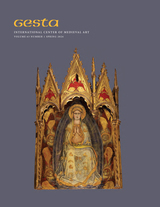211 start with L start with L
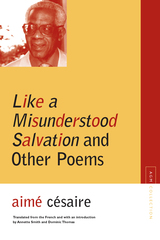
Annette Smith and Dominic Thomas’s new translations of Aimé Césaire’s Like a Misunderstood Salvation and Solar Throat Slashed (poems deleted) expose to a new audience a pivotal figure in twentieth-century French literature. This collection presents the early and last stages of a poet’s course, encapsulating in one volume Césaire’s entire literary career and creative evolution as perhaps the only French poet writing simultaneously at the crossroads of the avant-garde and classical movements.
This volume’s inclusion of previously deleted poems from Solar Throat Slashed is politically important; despite their initial exclusion from a French republication of Soleil Cou Coupé in 1961, these thirty-one poems are crucial to understanding Césaire’s legacy and remain of tremendous pertinence today as they provide helpful ways of thinking about and contextualizing discussions on race, identity, global identities, and the links between “black consciousness” and “social consciousness.”
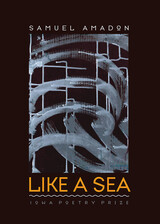
Drawing equally from Wallace Stevens, Gertrude Stein, John Berryman, and Robert Frost, Samuel Amadon’s award-winning Like a Sea is a collection of poems where personality is foregrounded and speech is both bizarre and familiar. Central to this weirdly talky work is “Each H,” a sequence of eleven monologues and dialogues wherein an unknown number of speakers examine their collective and singular identities while simultaneously distorting them. From a sequence of pared-down sonnets to a more traditional lyric to a procedural collage inspired by J. D. Salinger, Ezra Pound, Robert Lowell, Walter Benjamin, Jane Kenyon, Joris-Karl Huysmans, Primo Levi, Eugenio Montale, and Edwin Arlington Robinson, Like a Sea is a book of significant variation and originality.
Amadon’s electric collection begins with the line “I could not sound like anyone but me,” and through a wide range of forms and styles and voices he tests the true limits of that statement. The image of a half-abandoned Hartford, Connecticut, remains in the background of these poems, casting a tone of brokenness and haplessness. Ultimately Amadon’s poems present the confusion and fear of the current moment, of Stevens’s “river that flows nowhere, like a sea,” equally alongside its joyful ridiculousness and possibility. Rather than create worlds, they point out what a strange world already exists.
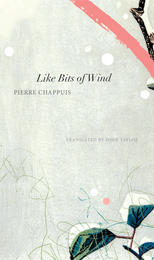
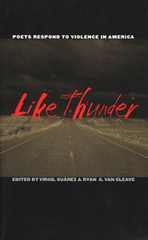
More than 140 poems by 120 of America's best poets that focus on the effects of violence in contemporary America.
From Waco to Columbine, from Oklahoma City to New York City, from domestic abuse and drive-by shootings to religious fanaticism and acts of terrorism, the poems in Like Thunder are for those who have perished and those who have survived. More than 140 poems by 120 poets focus, in the editors' words, on “the violence in the news, the violence in our schools, the violence in our homes, as well as the violence in our own minds.”
The poets gathered here articulate terror and suffering but also present images of hope and redemption; they write of individual menaces and individual victims and the melding of the two that potentially exists in everyone. By transforming horrifying details into larger truths, they create a poetry of witness, of survival, and of remembrance.
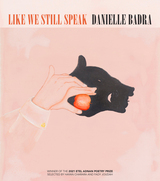
Conversation and memory are at the heart of Danielle Badra’s Like We Still Speak, winner of the 2021 Etel Adnan Poetry Prize. In her elegiac and formally inventive debut, Badra carries on talking with the sister and father she has lost, often setting her words alongside theirs and others’ in polyphonic poems that can be read in multiple directions. Badra invites the reader to engage in this communal space where she investigates inheritance, witnessing, intimacy, and survival.
“This is a deeply spiritual book, all the more so because of its clarity and humility. Yet, we cannot walk away from the addictive command that so many of these poems ask us to follow: to read them along plural paths whose order changes while their immeasurable spirit remains unbound. Each poem is a singular vessel—of narratives, embodiments that correspond with memories, memories that recollect passion. . . . Like We Still Speak is a sanctum. Inside it, we are enthralled by beauty, consoled by light, sustained by making.”
—Fady Joudah and Hayan Charara, from the Preface

Women’s voices and their desires are in the spotlight in this celebrated ninth-century Prakrit romance, set in modern-day coastal Andhra Pradesh.
The Prakrit romance Lilavai, an early ninth-century poem attributed to Kouhala and set in modern-day coastal Andhra Pradesh, is the most celebrated work in the genre. Complexly narrated in the alternating voices of its heroines and heroes and featuring a cast of semi-divine and magical beings, it centers on three young women: Lilavai, princess of Sinhala (today’s Sri Lanka); her cousin Mahanumai, princess of the mythical city Alaka; and Kuvalaavali, Mahanumai’s adopted sister. Following a prophecy that Lilavai’s husband will rule the earth, the princess happens upon a portrait of King Hala of Pratishthana and immediately falls in love. While journeying to meet him, she hears her cousins’ tales of their lost loves, and then vows not to marry until they are reunited. To win Lilavai’s hand, King Hala journeys to the underworld, faces monsters, and overcomes armies.
Lilavai explores themes of karma and female desire, notably privileging women as storytellers. A new edition of the Prakrit text, presented in the Devanagari script, accompanies a new English prose translation.
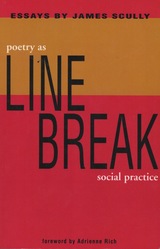
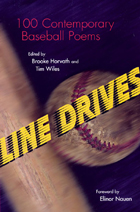
“We wait for baseball all winter long,” Bill Littlefield wrote in Boston Magazine a decade ago, “or rather, we remember it and anticipate it at the same time. We re-create what we have known and we imagine what we are going to do next. Maybe that’s what poets do, too.”
Poetry and baseball are occasions for well-put passion and expressive pondering, and just as passionate attention transforms the prose of everyday life into poetry, it also transforms this game we write about, play, or watch. Editors Brooke Horvath and Tim Wiles unite their own passion for baseball and poetry in this collection, Line Drives: 100 Contemporary Baseball Poems, providing a forum for ninety-two poets. Line after line, like baseball itself game after game and season after season, these poems manage to make the old and the familiar new and surprising.
The poems in these pages invite interrogation, and the reader—like the true baseball fan—must be willing to play the game, for these poems are fun, fresh, angry, nostalgic, meditative, and meant to be read aloud. They are keen on taking us deeply into baseball as sport and intent on offering countless metaphors for exploring history, religion, love, family, and self-identity. Each poem delivers images of pure beauty as the poets speak of murder and ghost runners and old ball gloves, of baseball as a tie that binds families—and indeed the nation—together, of the game as a stage upon which no-nonsense grit and skill are routinely displayed, and of the delight experienced in being one amid a mindlessly happy crowd. This book is true to the game’s long season and to the lives of those the game engages.
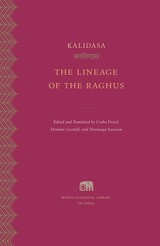
A new English translation of Raghuvaṃśa by the celebrated Sanskrit poet Kalidasa, who inspired such modern writers as Goethe and Tagore.
For a millennium and a half, Kalidasa’s works—from The Cloud Messenger to The Recognition of Shakuntala—have delighted audiences in India and beyond. Although the renowned poet and dramatist inspired many literary works over the centuries, little is known about his life. He likely lived in central India in the late fourth or early fifth century.
Kalidasa’s The Lineage of the Raghus, or Raghuvaṃśa, belongs to the Sanskrit literary tradition of mahākāvya, or court poem. It recounts the lives of ancient kings in the sūryavaṃśa, the Solar Dynasty who ruled from the capital city of Ayodhya. The poem describes, among other episodes, the quest for offspring by Dilipa, a descendant of the primordial king Manu; the world conquest of his son Raghu, which offers a panorama of the Indian subcontinent; the exploits of the famous Rama, an incarnation of Vishnu; and the debaucheries of Agnivarna, which jeopardize the future of the lineage.
This volume presents a new edition of the Sanskrit text in the Devanagari script alongside a fresh English translation of this enduring epic.

Is American vision implicitly possessive, as a generation of critics contends? By viewing the American poetic tradition through the prism of pragmatism, Elisa New contests this claim. A new reading of how poetry "sees," her work is a passionate defense of the power of the poem, the ethics of perception, and the broader possibilities of American sight.
American poems see more fully, and less invasively, than accounts of American literature as an inscription of imperial national ideology would allow. Moreover, New argues, their ways of seeing draw on, and develop, a vigorous mode of national representation alternative to the appropriative sort found in the quintessential American genre of encounter, the romance. Grounding her readings of Dickinson, Frost, Moore, and Williams in foundational texts by Edwards, Jefferson, Audubon, and Thoreau, New shows how varieties of attentiveness and solicitude cultivated in the early literature are realized in later poetry. She then discloses how these ideas infuse the philosophical notions about pragmatic experience codified by Emerson, James, and Dewey. As these philosophers insisted, and as New's readings prove, art is where the experience of experience can be had: to read, as to write, a poem is to let the line guide one's way.
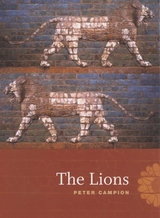
Big Avalanche Ravine
Just the warning light on a blue crane.
Just mountains. Just the mist that skimmed
them both and bled to silver rain
lashing the condominiums.
But there it sank on me. This urge
to carve a life from the long expanse.
To hold some ground against the surge
of sheer material. It was a tense
and persistent and metallic shiver.
And it stayed, that tremor, small and stark
as the noise of the hidden river
fluming its edge against the dark.
In his second collection of poems, Peter Campion writes about the struggle of making a life in America, about the urge “to carve a space” for love and family from out of the vast sweep of modern life. Coursing between the political and personal with astonishing ease, Campion writes at one moment of his disturbing connection to the public political structure, symbolized by Robert McNamara (who makes a startling appearance in the title poem), then in the next, of a haunting reverie beneath a magnolia tree, representing his impulse to escape the culture altogether. He moves through various forms just as effortlessly, as confident in rhymed quatrains as in slender, tensed free verse. In The Lions, Campion achieves a fusion of narrative structure and lyric intensity that proves him to be one of the very best poets of his generation.
Praise for Other People
“Campion is a poet who knows that what a poet sees is nothing without a mixture of formal prowess and emotional insight.”—David Biespiel, The Oregonian
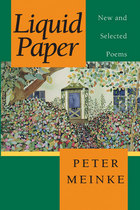

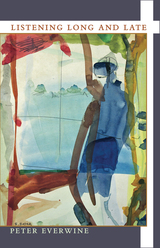
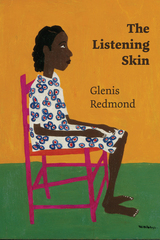
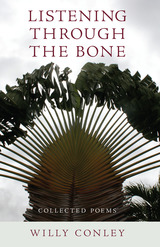
In Listening through the Bone, Willy Conley bears witness to life’s moments and renders them into poems that are at once irreverent and tender. His poetry examines life cycles, the natural world, and his experiences as a Deaf individual. It is presented in five parts:
- Inaudibles
- Existentials
- Quizzicals
- Irrevocables
- Environmentals
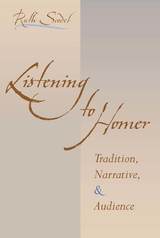
For a particular audience at a particular moment, "tradition" is what it believes it has inherited from the past--and it may not be particularly old. The boundaries between the traditional and the innovative may become blurry and indistinct. By rethinking tradition, we can see Homer's methods and concerns in a new light. The Homeric poet is not naive. He must convince his audience that the story is true. He must therefore seem disinterested, unconcerned with promoting anyone's interests. The poet speaks as if everything he says is merely the repetition of old tales. Yet he carefully ensures that even someone who knows only a minimal amount about the ancient heroes can follow and enjoy the performance, while someone who knows many stories will not remember inappropriate ones. Pretending that every detail is already familiar, the poet heightens suspense and implies that ordinary people are the real judges of great heroes.
---Greece & Rome
---Irene J.F. de Jong, Gnomon

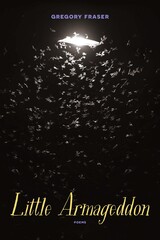
It is our everyday explorations—the small explosions within life, family, and “ordinary” survival—that make up Gregory Fraser’s fourth collection of poetry, Little Armageddon. Fraser writes at eye level, detailing the experiences of fatherhood, love, and the quiet of daily life, poised at the brink of abrupt upheaval.
These poems are an exercise in precision and reflection. Free verse and prose show readers the life within the landscape. In “My Daughter and the Lizard,” the speaker reflects on grace, meditating on the reptile his child is inspecting: “I scissor-jab three holes through the lid / of a Mason jar and tell her to be gentle, / ‘It’s a living thing,’ I say, ‘not a toy.’”
We are how we live. These poems balance imagination and truth telling with rich verse that brings the reader’s ear closer to the quiet—and how intense it truly is.
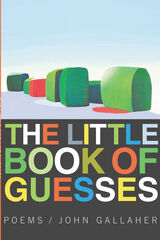
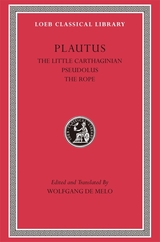
Funny happenings.
The rollicking comedies of Plautus, who brilliantly adapted Greek plays for Roman audiences ca. 205–184 BC, are the earliest Latin works to survive complete and are cornerstones of the European theatrical tradition from Shakespeare and Molière to modern times. This fourth volume of a new Loeb edition of all twenty-one of Plautus’ extant comedies presents The Little Carthaginian, Pseudolus, and The Rope with freshly edited texts, lively modern translations, introductions, and ample explanatory notes.
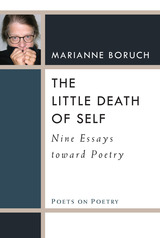
The line between poetry (the delicate, surprising not-quite) and the essay (the emphatic so-there!) is thin, easily crossed. Both welcome a deep mulling-over, endlessly mixing image and idea and running with scissors; certainly each distrusts the notion of premise or formulaic progression. Marianne Boruch’s essays in The Little Death of Self emerged by way of odd details or bothersome questions that would not quit—Why does the self grow smaller as the poem grows enormous? Why does closure in a poem so often mean keep going? Must we stalk the poem or does the poem stalk us until the world clicks open?
Boruch’s intrepid curiosity led her to explore fields of expertise about which she knew little: aviation, music, anatomy, history, medicine, photography, fiction, neuroscience, physics, anthropology, painting, and drawing. There’s an addiction to metaphor here, an affection for image, sudden turns of thinking, and the great subjects of poetry: love, death, time, knowledge. There’s amazement at the dumb luck of staying long enough in an inkling to make it a poem at all. Poets such as Keats, Stevens, Frost, Plath, Auden, and Bishop, along with painters, inventors, doctors, scientists, composers, musicians, neighbors, friends, and family—all traffic blatantly or under the surface—and one gets a glimpse of such fellow travelers now and then.
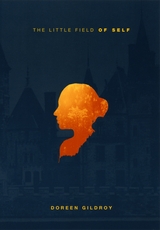
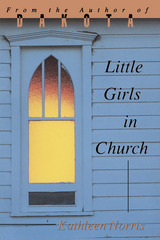
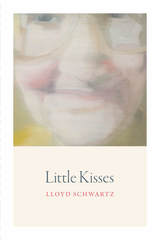
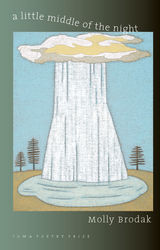
The language of Molly Brodak’s first full-length collection, A Little Middle of the Night, is ever shifting, brightly sonic, and disarming while exploring the margin between nature and art, darkness and beauty, dreams and awakenings. As echoed in one epigraph from Emerson, these poems capture “the Exact and the Vast” of consciousness in intense lyric verse with an angular and almost scientific sensitivity. Here is a speaker intent on discovery: “Oh whole world, we choose / another.”
This award-winning collection simmers with wit as Brodak confronts tragedy, childhood losses, transcendent love, and the question of art itself. Tinged with a suffering—“I was the littlest wastebasket. / I was my own church. Except— / scared, scared”—that rises above personal sorrow, her fierce and painterly poems redefine nature and art and what exists between: “Lately, there is spangled shade in my space / and a cold apple orchard to tend in place of consciousness.” As Reginald Shepherd said about the poems in Brodak’s first collection, the chapbook Instructions for a Painting, her world is “‘small enough / to sing in all directions,’ and large enough to take us there.”

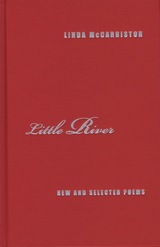
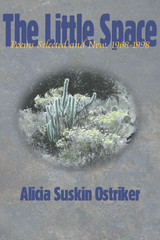
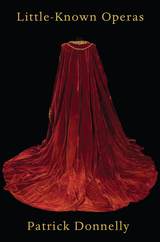
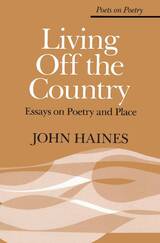
We live on the surface, he discovered. It is the land that makes people. If a poet will see, will feel, will interpret his place and then relate that experience to what he knows of the world at large, he will have a life in imagination, a vitality beyond appearances.
John Haines is author of At the End of Summer: Poems 1948-1954; Fables and Distances: New and Selected Essays; and The Owl in the Mask of the Dreamer. He received the Lenore Marshall Poetry Prize in 1991.

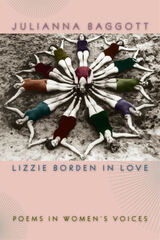
Women’s voices offering an intimate view into women’s lives
Lizzie Borden in Love, a collection of poems by national bestselling author Julianna Baggott, offers poignant commentary in the voices of women as varied as Mary Todd Lincoln and Monica Lewinsky. The poems often focus on a particular moment in life: Katherine Hepburn discovers the dead body of her brother in an attic, or painter Mary Cassatt mourns the failure of her eyesight. Sometimes heartbreaking, sometimes ecstatic, the poems in this collection never fail the trust of the subjects of their intimate portrayals
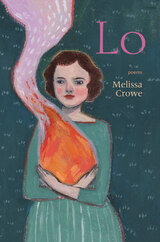
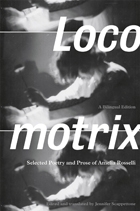
A musician, musicologist, and self-defined “poet of research,” Amelia Rosselli (1930–96) was one of the most important poets to emerge from Europe in the aftermath of World War II. Following a childhood and adolescence spent in exile from Fascist Italy between France, England, and the United States, Rosselli was driven to express the hopes and devastations of the postwar epoch through her demanding and defamiliarizing lines. Rosselli’s trilingual body of work synthesizes a hybrid literary heritage stretching from Dante and the troubadours through Ezra Pound and John Berryman, in which playful inventions across Italian, English, and French coexist with unadorned social critique. In a period dominated by the confessional mode, Rosselli aspired to compose stanzas characterized by a new objectivity and collective orientation, “where the I is the public, where the I is things, where the I is the things that happen.” Having chosen Italy as an “ideal fatherland,” Rosselli wrote searching and often discomposing verse that redefined the domain of Italian poetics and, in the process, irrevocably changed the Italian language.
This collection, the first to bring together a generous selection of her poems and prose in English and in translation, is enhanced by an extensive critical introduction and notes by translator Jennifer Scappettone. Equipping readers with the context for better apprehending Rosselli’s experimental approach to language, Locomotrix seeks to introduce English-language readers to the extraordinary career of this crucial, if still eclipsed, voice of the twentieth century.
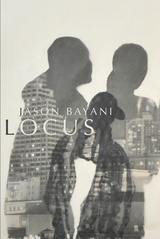

A paperback anthology of essential Greek and Latin texts with facing English translations.
“It is ideal reading for bar, bus, bed or beach. Everyone, teacher and taught alike, should have one. It is this year’s must-have present.”—The Journal of Classics Teaching
This selection of lapidary nuggets drawn from thirty-three of antiquity’s major authors includes poetry, dialogue, philosophical writing, history, descriptive reports, satire, and fiction—giving a glimpse at the wide range of arts and sciences, thought and styles, of Greco-Roman culture.
The selections span twelve centuries, from Homer to Saint Jerome. The texts and translations are reproduced as they appear in Loeb volumes.
The Loeb Classical Library is the only existing series that, through original text and English translation, gives access to all that is important in Greek and Latin literature. A Loeb Classical Library Reader offers a unique sampling of this treasure trove.
In these pages you will find, for example: Odysseus tricking the Cyclops in order to escape from the giant’s cave; Zeus creating the first woman, Pandora, cause of mortals’ hardships ever after; the Athenian general Nicias dissuading his countrymen from invading Sicily; Socrates, condemned to die, saying farewell; a description of Herod’s fortified palace at Masada; Cicero’s thoughts on what we owe our fellow men; Livy’s description of the rape of the Sabine women; Manilius on the signs of the zodiac; and Pliny’s observation of the eruption of Vesuvius in AD 79.
Here you can enjoy looking in on people, real and imaginary, who figure prominently in ancient history, and on notable events. Here, too, you can relish classical poetry and comedy, and get a taste of the ideas characteristic of the splendid culture to which we are heir.
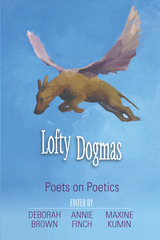
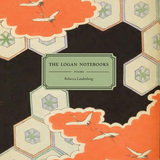
“These poems are intent on calling out the migratory beauty of this world, in a neighbor-voice: friendly, from the yard nearby, pointing out stuff we might not have noticed. They frequently employ that most ancient of forms, the list, to show us what we shine a light on, what we look past, what we reflect, what we miss. In that way, they speak like the meadowlark who says, See you! See you! These poems are for when we shall no longer fear the ecstatic, because we’ll know that ecstasy too is quotidian, as daily as a meadowlark’s shopping list.”
—Eleni Sikelianos
—Jill Alexander Essbaum
Clouds, mountains, flowering trees. Difficult things. Things lost by being photographed. Things that have lost their power. Things found in a rural grocery store. These are some of the lists, poems, prose poems, and lyric anecdotes compiled in The Logan Notebooks, a remix and a reimagining of The Pillow Book of Sei Shonagon, a collection of intimate and imaginative observations about place—a real place, an interior landscape—and identity, at the intersection of the human with the world, and the language we have (and do not yet have) for perceiving it.

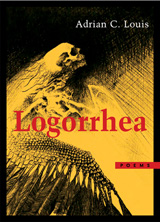
In a torrent of rage, love, and irony, Adrian C. Louis explodes all the myths and hypocrisy of Middle America in the twenty-first century. This is how Walt Whitman or Allen Ginsburg might have written about our post-9/11 world--where the realities of poverty on Indian reservations and the plight of Hurricane Katrina victims come in second place to the vagaries of Homeland Security. For Louis, both he and our nation face an uncertain future. Like many of us he is trapped in a surreal void of the present, where he is faced with middle age and isolation, the death of loved ones, an unsatisfying job, and the battle against loneliness and self-destruction. He writes as if he has nothing left to lose but then fills the page with bittersweet sorrow for everything that has been lost. Armed with unforgettable images, relentless rhythms, and a dark and scathing humor, Louis takes aim at this American life.
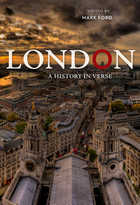
Called “the flour of Cities all,” London has long been understood through the poetry it has inspired. Now poet Mark Ford has assembled the most capacious and wide-ranging anthology of poems about London to date, from Chaucer to Wordsworth to the present day, providing a chronological tour of urban life and of English literature.
Nearly all of the major poets of British literature have left some poetic record of London: Chaucer, Spenser, Shakespeare, Donne, Milton, Dryden, Pope, Johnson, Wordsworth, Keats, Byron, and T. S. Eliot. Ford goes well beyond these figures, however, to gather significant verse of all kinds, from Jacobean city comedies to nursery rhymes, from topical satire to anonymous ballads. The result is a cultural history of the city in verse, one that represents all classes of London’s population over some seven centuries, mingling the high and low, the elegant and the salacious, the courtly and the street smart. Many of the poems respond to large events in the city’s history—the beheading of Charles I, the Great Fire, the Blitz—but the majority reflect the quieter routines and anxieties of everyday life through the centuries.
Ford’s selections are arranged chronologically, thus preserving a sense of the strata of the capital’s history. An introductory essay by the poet explores in detail the cultural, political, and aesthetic significance of the verse inspired by this great city. The result is a volume as rich and vibrant and diverse as London itself.
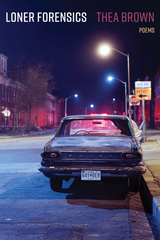
In Loner Forensics, Thea Brown dreams up and dissects a city beset by unexplained disappearances, roving silences, and climate collapse. This sprawling collection comprises a series of interviews with denizens of the shifting city, each mediated through the lonely lens of the Detective, a character whose refractive investigation atomizes the scene. As much a study of complicity as a critique of capitalism’s distortive effects on human emotional response, Loner Forensics questions what happens when our innermost terrains become newly unfamiliar in an unraveling natural world.
Dark, fractured, and canny, Brown’s shimmering third collection draws on parallel universes, 1980s video games, social media pop-speak, and ghost towns to immerse the reader in grief, utopia, disaster—and, ultimately, love.

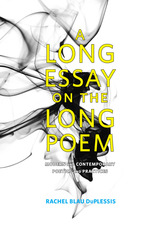
For decades, Rachel Blau DuPlessis has shown readers how genres, forms, and the literal acts of writing and reception can be understood as sites of struggle. In her own words, “writing is . . . a praxis . . . in which the author disappears into a process, into a community, into discontinuities, and into a desire for discovery.” It is cause for celebration, then, that we have another work of warm, incisive, exploratory writing from DuPlessis in A Long Essay on the Long Poem.
Long poems, DuPlessis notes, are elusive, particularly in the slippery forms that have emerged in the postmodern mode. She cites both Nathaniel Mackey and Anne Waldman in thinking of the poem as a “box,” both in the sense of a vessel that contains and as a machine that processes, an instrument on which language is played. This study’s central attention is on the long poem as a sociocultural Book, distinctively envisioned by a range of authors.
To reckon with these shifting and evolving forms, DuPlessis works in a polyvalent mode, a hybrid of critical analysis and speculative essay. She divides the long poem and the long poets into three genres: epics, quests, and a composite she terms “assemblages.” The poets she surveys include T. S. Eliot, Ezra Pound, H.D., Louis Zukofsky, Gwendolyn Brooks, Charles Olson, Alice Notley, Nathaniel Mackey, Ron Silliman, Robert Duncan, Kamau Brathwaite, and, finally, Mallarmé and Dante. Instead of a traditional lineage, she deliberately seeks intersecting patterns of connection between poems and projects, a nexus rather than a family tree. In doing so she navigates both some challenges of long poems and her own attempt to “essay” them. The result is a fascinating and generous work that defies categorization as anything other than essential.
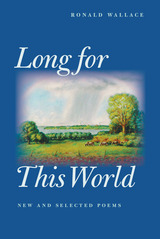
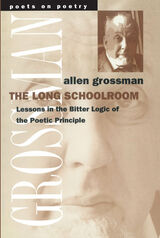
The jist of what he learned--of what his "lessons" taught him--was (in the sentence of Oliver Wendell Holmes): "Where most men have died, there is the greatest interest." According to Grossman, violence arises not merely from the "barbarian" outside of the culture the poet serves, but from the inner logic of that culture; not, as he would now say, from the defeat of cultural membership but from the terms of cultural membership itself.
Grossman analyzes the "bitter logic of the poetic principle" as it is articulated in exemplary texts and figures, including Bede's Caedmon and Milton. But the heart of The Long Schoolroom is American, ranging from essays on Whitman and Lincoln to an in-depth review of the work of Hart Crane. His final essays probe the example of postmodern Jewish and Christian poetry in this country, most notably the work of Robert Lowell and Allen Ginsburg, as it searches for an understanding of "holiness" in the production and control of violence.
Allen Grossman is author of The Ether Dome and Other Poems: New and Selected, The Sighted Singer: Two Works on Poetry for Readers and Writers (with Mark Halliday), and most recently, The Philosopher's Window. He is Mellon Professor in the Humanities at The Johns Hopkins University.
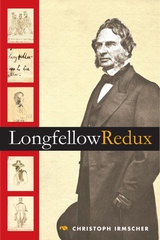
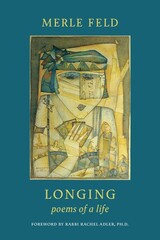
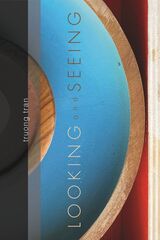
This book brings together different perspectives under two titles, considering the lives and experiences of two friends, one Vietnamese American and one white. Looking And Seeing is a poetic work of yearning, regret, and righteous indignation. In Truong Tran’s poetry, what is said and what is written reveal our complexities. Composed as an investigation of his own being and body as a brown person moving through white spaces, this collection moves alongside Tran’s friend and collaborator Damon Potter. Seeing and Looking offers a record of Potter’s perspective as a white man examining who he is and wants to be and the complications of trying to be good while also benefiting from histories of oppression. Potter considers death—both his own future death and the deaths of his friends—while grappling with how to witness horrors, wonders, and his self.
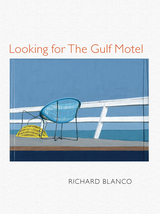
Family continues to be a wellspring of inspiration and learning for Blanco. His third book of poetry, Looking for The Gulf Motel, is a genealogy of the heart, exploring how his family’s emotion legacy has shaped—and continues shaping—his perspectives. The collection is presented in three movements, each one chronicling his understanding of a particular facet of life from childhood into adulthood. As a child born into the milieu of his Cuban exiled familia, the first movement delves into early questions of cultural identity and their evolution into his unrelenting sense of displacement and quest for the elusive meaning of home. The second, begins with poems peering back into family again, examining the blurred lines of gender, the frailty of his father-son relationship, and the intersection of his cultural and sexual identities as a Cuban-American gay man living in rural Maine. In the last movement, poems focused on his mother’s life shaped by exile, his father’s death, and the passing of a generation of relatives, all provide lessons about his own impermanence in the world and the permanence of loss. Looking for the Gulf Motel is looking for the beauty of that which we cannot hold onto, be it country, family, or love.
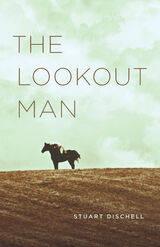
Sometimes elegiac, sometimes deadly comic, and always transformative, The Lookout Man embodies the energy, spirit, and craft that we have come to depend upon in Stuart Dischell’s poetry. Inhabiting a mix of lyric structures, these poems are set in diverse locales from the middle of the ocean to the summit of Mont Blanc, from the backyards of America to the streets of international cities. There is a hesitant, almost encroaching wisdom in The Lookout Man, as Dischell allows his edgy vision and singular perspectives to co-exist with the music of his poems. In lines that close the book and typify Dischell’s work, he writes, “I will ask the dogwoods to remind me // What it means to live along the edges of the woods, / To be promiscuous but bear white flowers.”
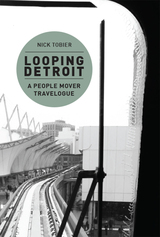
Looping Detroit invites artists and writers to ride the small loop as an explorer, mining the environs around each station as a poetic ramble, a psycho geographic wander, a cultural inquiry that simultaneously ponders the poetics of circulating above the city streets while probing the greater narrative of Detroit’s public transit conundrum.
Contributors include award-winning Detroit novelists Lolita Hernandez and Michael Zardoorian, poets Gloria House and Walter Lacy, music producer Cornelius Harris, Chace MicWrite Morris, frontman of the Detroit hip-hop trio Coldmen Young, and radio producer Zak Rosen.
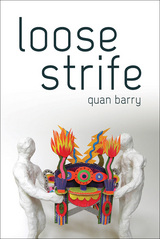
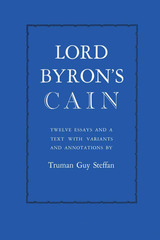
Cain has been ranked as one of the two best dramatic poems written in England in the nineteenth century. Because of its religious heterodoxy, which veiled a political iconoclasm, and also because of Byron’s notoriety, Cain stirred up a storm among Tories and clergymen “from Kentish town to Pisa.” From 1821 to 1830 more was printed about its eighteen hundred alarming lines than about the twenty thousand of Don Juan. One solemn Frenchman even translated the work in order to supply his countrymen with a text that he could then rewrite and confute.
After the initial controversy, readers began to regard Cain not merely as revolutionary propaganda but as a fictional portrait of common youthful experience: a sequence of aspiration, discontent, uncertainty, confusion, misunderstood isolation, fear, frustration, anger, and finally a rash, inevitable, but futile revolt that led to a future of hopeless regret.
Truman Guy Steffan here presents a text, arrived at by collation of the first and several later editions with the original manuscript (presently in the Stark Collection of the Miriam Lutcher Stark Library at the Harry Ransom Center, the University of Texas at Austin).
The first eight essays, which comprise Part I, cover a number of literary topics: Byron’s defense of his purposes in Cain and the relevance of his dramatic theory to the poem; the characterization that is an ideological confrontation, a revelation of personal conflict, as well as a rendering of individuals who have an existence independent of the author; the principles that controlled Byron’s absorption and expansion of biblical materials; the integration of the imagery with the dramatic substance; the incongruities of the language; the metrical heterodoxy; and a description of the manuscript and of Byron’s insertions.
Part II contains the text of Cain, accompanied by notes on the variants, the manuscript cancellations and additions, certain linguistic details, and the scansion of some unusual verses. Then follow annotations on allusions, sources, and analogues, and on a few passages of the play that have elicited unusual conflict over interpretation.
Part III provides a history of Cain criticism, from the opinions of Byron’s social and literary circle and of the major periodicals and pamphlets to the more complicated contribution of the twentieth century.
This important work stands not only as a valuable addition to Byron scholarship but also as an illuminating record of the changing critical and cultural attitudes from the early nineteenth century to the 1960s. Steffan has done a remarkable job in bringing together and synthesizing an enormous body of material.
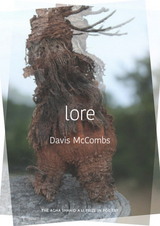
Winner of the Agha Shahid Ali Poetry Prize
Drawn from the rich folk traditions of his native Mammoth Cave region in Kentucky as well as the folklore of his adopted Ozark Mountains of Arkansas, the poems in Davis McCombs’s third collection exist along the fraught lines where nature and agriculture collide or in those charged moments where modernity intrudes on an archaic world. These poems celebrate out-of-the-way places, the lore of plants, wild animals and their unknowable lives, and nearly forgotten ways of being and talking and doing. Rendered in a language of great lexical juxtapositions, here are days of soil and labor, nights lit only by firelight, and the beings, possibly not of this world, lured like moths to its flames. McCombs, always a poet of place and of rootedness, writes poems teetering between two locales, one familiar but achingly distant, one bewildering but alluringly present.
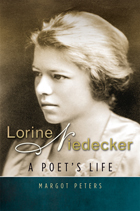
Lorine Niedecker (1903–70) was a poet of extraordinary talent whose life and work were long enveloped in obscurity. After her death in 1970, poet Basil Bunting wrote that she was “the most interesting woman poet America has yet produced . . . only beginning to be appreciated when she died.” Her poverty and arduous family life, the isolated home in Wisconsin that provided rich imagery for her work, and her unusual acquaintances have all contributed to Niedecker’s enigmatic reputation.
Margot Peters brings Lorine Niedecker’s life out of the shadows in this first full biography of the poet. She depicts Niedecker’s watery world on Blackhawk Island (near Fort Atkinson, Wisconsin), where she was born and spent most of her life. A brief college career cut short by family obligations and an equally brief marriage were followed in 1931 by the start of a life-changing correspondence and complicated thirty-five-year friendship with modernist poet Louis Zukofsky, who connected Niedecker to a literary lifeline of distant poets and magazines. Supporting herself by turns as a hospital scrubwoman and proofreader for a dairy journal, Niedecker made a late marriage to an industrial painter, which gave her time to write and publish her work in the final decades of her life.
During her lifetime, Niedecker’s poetry was praised by a relatively small literary circle, including Zukofsky, William Carlos Williams, Robert Creeley, Denise Levetov, and Allen Ginsberg. Since her death much more of her surviving writings have been published, including a comprehensive edition of collected works and two volumes of correspondence. Through Margot Peters’s compelling biography, readers will discover Lorine Niedecker as a poet of spare and brilliant verse and a woman whose talent and grit carried her through periods of desperation and despair.
Best Special Interest Books, selected by the American Association of School Librarians

Halliday’s poetry exploits the vast array of dictions, idioms, rhetorical maneuvers, and tones available to real-life speakers (including speakers talking to themselves). Often Halliday gives a poem to a speaker who is distressed, angry, confused, defensive, self-excusing, or driven by yearning, so that the poem may dramatize the speaker’s state of mind while also implying the poet’s ironic perspective on the speaker. Meanwhile, a few other poems (for instance “A Gender Theory” and “Thin White Shirts” and “First Wife” and “You Lament”) try to push beyond irony into earnestness and wholehearted declaration. The tension between irony and belief is the engine of Halliday’s poetry.

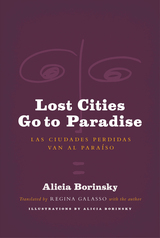
At the center of Borinsky’s work are the cities, which are a masquerade of disaster and spectacle that moves through space and time. Within these cities reside a man with two bills who gives three out of generosity, a woman who hides her face so that she may be better seen, cheating lovers who betray only to end up entwined in a tango, and immigrants who borrow each other’s accents. Filled with energy and irreverence, Lost Cities Go to Paradise captures the indignities and excitement of living among others in a society and discovering what is valued—and all that is not.

—from the Judge’s Citation by Kristina Marie Darling
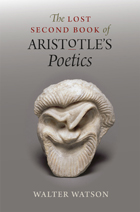
Of all the writings on theory and aesthetics—ancient, medieval, or modern—the most important is indisputably Aristotle’s Poetics, the first philosophical treatise to propound a theory of literature. In the Poetics, Aristotle writes that he will speak of comedy—but there is no further mention of comedy. Aristotle writes also that he will address catharsis and an analysis of what is funny. But he does not actually address any of those ideas. The surviving Poetics is incomplete.
Until today. Here, Walter Watson offers a new interpretation of the lost second book of Aristotle's Poetics. Based on Richard Janko’s philological reconstruction of the epitome, a summary first recovered in 1839 and hotly contested thereafter, Watson mounts a compelling philosophical argument that places the statements of this summary of the Aristotelian text in their true context. Watson renders lucid and complete explanations of Aristotle’s ideas about catharsis, comedy, and a summary account of the different types of poetry, ideas that influenced not only Cicero’s theory of the ridiculous, but also Freud’s theory of jokes, humor, and the comic.
Finally, more than two millennia after it was first written, and after five hundred years of scrutiny, Aristotle’s Poetics is more complete than ever before. Here, at last, Aristotle’s lost second book is found again.
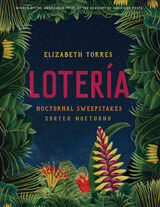
Lotería: Nocturnal Sweepstakes is a collection of deeply evocative coming-of-age poems that take the reader on a voyage through the intimate experiences of displacement. Conjuring dreamlike visions of extravagant fruits and rivers animated by the power of divination, these poems follow the speaker from the lash of war’s arrival through an urgent escape and reinvention in a land that saves with maternal instinct but also smothers its children.
In this bilingual collection, Colombian American poet Elizabeth Torres threads together the stories of family dynamics and the realities of migration with the archetypes of tarot and the traditional Lotería game, used for centuries as an object of divination and entertainment. Through these themes and images, the poems in Lotería narrate intimate moments in the lives and journeys of migrants, refugees, and all who have been forced into metamorphosis in order to reach the other side of the river.
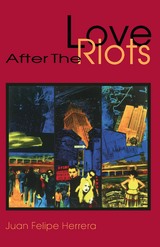

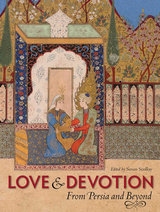
Yusuf and Zulaykha. Khusrau and Shirin. Layla and Majnun. For hundreds of years, Persian poets have captivated audiences with recitations and reinterpretations of timeless tales of earthly and spiritual love. These tales were treasured not only in Iran, but also across the neighboring Mughal and Ottoman Empires.
In Love and Devotion, leading specialists in literature, art history, and philosophy reveal new perspectives on these evocative stories and the exquisite illustrated manuscripts that convey them. Particularly in courtly settings, poetry was a key component of Persian cultural life from the fourteenth through the eighteenth century, and elite patrons commissioned copies of lyrical poems and epics told in verse. Beautifully presented here in full-page reproductions are more than one hundred folios from these illustrated manuscripts, representing masterful works from Hafiz, Rumi, and many others. Echoes of works by Persian poets are manifest across European literature from Dante and Shakespeare to the present, and this lavishly illustrated book reveals new perspectives on the universal theme of love.
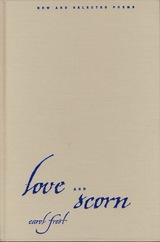
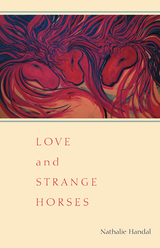
"Trembles with belonging (and longing) and love and sex."
--The New York Times
"Nathalie Handal's Love and Strange Horses is riddled with provocative incantations that verge on a conjuring solidly based in this world and beyond. There's a subtle singing locked inside each poem that raises the stakes. This cosmopolitan voice belongs to the human family, and it luxuriates in crossing necessary borders. The pages are lit with scintillations that transport the reader to pithy zones of thought and pleasure."
--Yusef Komunyakaa
Nathalie Handal is an award-winning poet, playwright, and writer. She is the author of two previous poetry collections: The NeverField and The Lives of Rain. Handal is the editor of The Poetry of Arab Women: A Contemporary Anthology, winner of the PEN Oakland/Josephine Miles Award, and coeditor of Language for a New Century: Contemporary Poetry from the Middle East, Asia & Beyond. Her work has appeared in numerous anthologies and publications including Ploughshares, Crab Orchard Review, and the Literary Review. She was named an honored finalist for the 2009 Gift of Freedom Award.

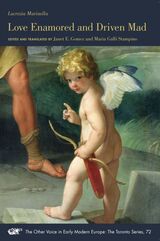
The Other Voice in Early Modern Europe - The Toronto Series, volume 72
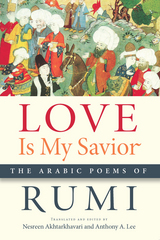
This dual-language volume opens a treasury of Rumi’s mystic thought and startling poetry. His verses pulsate with desire and longing, with sensuality, and with ecstatic celebration. Rumi found in his mystic poetry a vehicle for the expression of the endless spiritual bounties of love. He placed love at the center of his faith and doctrine, and he pronounced it to be the goal of his life and the only form of true worship. This collection is stunningly rendered in English by an award-winning poet and a distinguished translator of Arabic poetry.
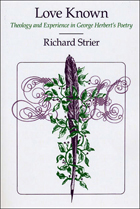

“What love poem / could be written when men can no longer / look up?” this book asks, always in a state of flux between doubt and belief—in wars, in gods, in fathers, in love. Through epistolary addresses to these figures of power and others, these poems attempt to make bodies concrete and dangerous, immediate and addressable, once again.
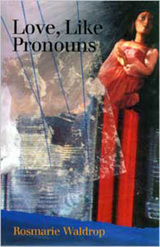
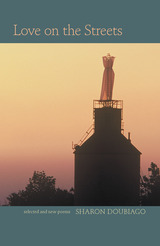
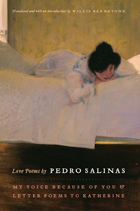
When Pedro Salinas’s 1933 collection of love poems, La voz a ti debida, was introduced to American audiences in Willis Barnstone’s 1975 English translation, it was widely regarded as the greatest sequence of love poems written by a man or a woman, in any language, in the twentieth century. Now, seventy-five years after its publication, the reputation of the poems and its multifaceted writer remains untarnished. A portrait of their era, the poems, from a writer in exile from his native civil war–torn Spain, now reemerge in our time.
In this new, facing-page bilingual edition, Barnstone has added thirty-six poems written in the form of letters from Salinas to his great love, Katherine Whitmore. Discovered years later, these poems were written during and after the composition of La voz and, though disguised as prose, have all the rhythms and sounds of lineated lyric poetry. Taken together, the poems and letters are a history, a dramatic monologue, and a crushing and inevitable ending to the story of a man consumed by his love and his art.
Bolstered by an elegant foreword by Salinas’s contemporary, the poet Jorge Guillén, and a masterly afterword by the Salinas scholar, Enric Bou, that considers the poet and his legacy for twenty-first century world poetry, Love Poems by Pedro Salinas will be cause for celebration throughout the world of verse and beyond.
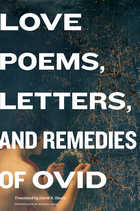
Widely praised for his recent translations of Boethius and Ariosto, David R. Slavitt returns to Ovid, once again bringing to the contemporary ear the spirited, idiomatic, audacious charms of this master poet.
The love described here is the anguished, ruinous kind, for which Ovid was among the first to find expression. In the Amores, he testifies to the male experience, and in the companion Heroides—through a series of dramatic monologues addressed to absent lovers—he imagines how love goes for women. “You think she is ardent with you? So was she ardent with him,” cries Oenone to Paris. Sappho, revisiting the forest where she lay with Phaon, sighs, “The place / without your presence is just another place. / You were what made it magic.” The Remedia Amoris sees love as a sickness, and offers curative advice: “The beginning is your best chance to resist”; “Try to avoid onions, / imported or domestic. And arugula is bad. / Whatever may incline your body to Venus / keep away from.” The voices of men and women produce a volley of extravagant laments over love’s inconstancy and confusions, as though elegance and vigor of expression might compensate for heartache.
Though these love poems come to us across millennia, Slavitt’s translations, introduced by Pulitzer Prize winner Michael Dirda, ensure that their sentiments have not faded with the passage of time. They delight us with their wit, even as we weep a little in recognition.
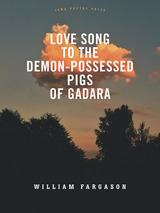
In his debut collection, William Fargason inspects the pain of memory alongside the pain of the physical body. Fargason takes language to its limits to demonstrate how grief is given a voice. His speaker confronts illness, grapples with grief, and heals after loss in its most crushing forms. These poems attempt to make sense of trauma in a time of belligerent fathers and unacceptable answers. Fargason necessarily confronts toxic masculinity while navigating spiritual and emotional vulnerability.
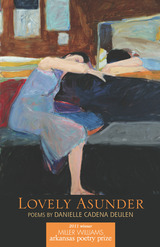
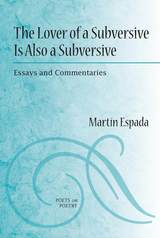
Prior praise for Martín Espada:
"Political poetry at its finest…with his soaring lyrics, Espada broadens our appreciation not only of poetry but of resistance itself."
---The Progressive
"(Espada) writes beautiful poems about terrible realities."
---San Francisco Chronicle
A volume in the Poets on Poetry series, which collects critical works by contemporary poets, gathering together the articles, interviews, and book reviews by which they have articulated the poetics of a new generation.
This collection of essays on poetry and politics comes from the man the New York Times predicted would become "the Latino poet of his generation" and whom Sandra Cisneros called "the Pablo Neruda of North American authors."
Martín Espada defends what Walt Whitman called, "the rights of them the others are down upon." He invokes the spirit of poet-advocates such as Whitman and Edgar Lee Masters to explore his own history as a poet and tenant lawyer in Boston's Latino community. He celebrates the poets of Puerto Rico, imprisoned for espousing the cause of independence, and the poets of the Bronx, writing bilingual poems in the voices of the dead.
Espada writes of forgotten places and reminds us of the poet's responsibility to remember, as Pablo Neruda remembers the anonymous builders of Machu Picchu or Sterling Brown remembers the slave uprising of Nat Turner. He argues that poets should embrace the role of Shelley's "unacknowledged legislator" in their work as writers and in their lives as citizens. He challenges the conventional wisdom that poetry and politics are mutually exclusive, and rejects the poetics of self-marginalization, in keeping with Adrian Mitchell's dictum that, "most people ignore most poetry because most poetry ignores most people."
Martín Espada has published seventeen books as a poet, editor, and translator. The Republic of Poetry, a collection of poems, received a Paterson Award for Sustained Literary Achievement and was a finalist for the Pulitzer Prize. Imagine the Angels of Bread won an American Book Award and was a finalist for the National Book Critics Circle Award. He has received numerous fellowships and awards, including a Guggenheim Fellowship and the National Hispanic Cultural Center Literary Award. Espada is a Professor of English at the University of Massachusetts-Amherst.
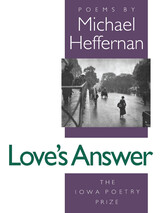
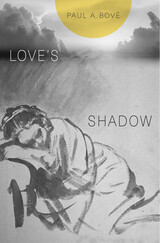
A case for literary critics and other humanists to stop wallowing in their aestheticized helplessness and instead turn to poetry, comedy, and love.
Literary criticism is an agent of despair, and its poster child is Walter Benjamin. Critics have spent decades stewing in his melancholy. What if, instead, we dared to love poetry, to choose comedy over Hamlet’s tragedy, or to pursue romance over Benjamin’s suicide on the edge of France, of Europe, and of civilization itself?
Paul A. Bové challenges young lit critters to throw away their shades and let the sun shine in. Love’s Shadow is his three-step manifesto for a new literary criticism that risks sentimentality and melodrama and eschews self-consciousness. The first step is to choose poetry. There has been since the time of Plato a battle between philosophy and poetry. Philosophy has championed misogyny, while poetry has championed women, like Shakespeare’s Rosalind. Philosophy is ever so stringent; try instead the sober cheerfulness of Wallace Stevens. Bové’s second step is to choose the essay. He praises Benjamin’s great friend and sometime antagonist Theodor Adorno, who gloried in writing essays, not dissertations and treatises. The third step is to choose love. If you want a Baroque hero, make that hero Rembrandt, who brought lovers to life in his paintings.
Putting aside passivity and cynicism would amount to a revolution in literary studies. Bové seeks nothing less, and he has a program for achieving it.
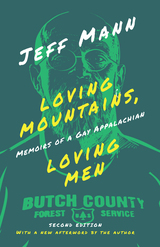
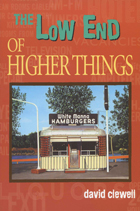
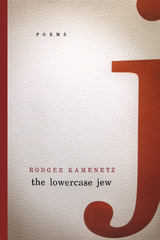
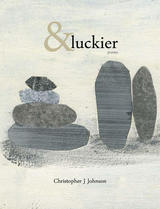
Mountain West Poetry Series
In his first collection of poems, &luckier, Christopher J Johnson explores the depths to which we can know our most intimate friends, habits, and—even more so—selves. From a mosaic of coffee cups, dinner engagements, razors, walks around his city, and the wider realm of nature, the poet continually asks to what degree our lives can be understood, our joys engaged with, and our sorrows mitigated. In a voice that is at once contemporary and yet almost primal, these poems seek an affinity with the natural world, the passing of history, and the deepness and breadth of ancestry; they do not question the mystery of life but ask rather how we have become separated from and might return to a more aware place within the frame of it. These are poems rich with metaphor and music but also direct in their voice. Johnson exhibits a poetic tradition that—rather than employing academic allusions and direct personal statements—remains elusive in its use of the poetic “I.” The reader is never certain if they are reading about the poet, their friends, or themselves.
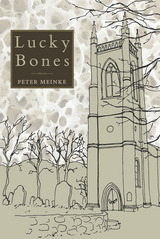
Consisting of over sixty new poems, the book begins with a house-shaped poem about a family in a beloved old home, and then moves out into the world with poems about a fire-bug, drive-by shootings, and the often violent human condition before circling back to the home and a final epitaph. A clear-eyed feeling of loss permeates Lucky Bones, but not despair: in the midst of conflict, Meinke’s world is full of wonder, and wonderful people.


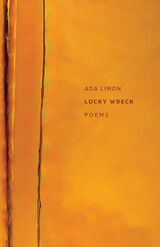
it’s the one before the sun comes up,
the one you can still breathe in.
Celebrating the fifteenth anniversary of Limón’s award-winning debut, this edition includes a new introduction by the poet that reflects on the book and on how her writing practice has developed over time.
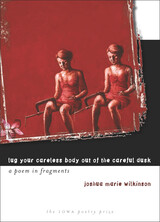
Drawing from the paintings of Susan Rothenberg, Gwyneth Scally, and Eric Fischl as well as from the photography of Allison Maletz, Joshua Marie Wilkinson’s Lug Your Careless Body out of the Careful Dusk is a book-length poem written in small fragments. Comprised of seven sections, the poem is formed as much by the poet’s travels through Turkey, the Baltics, and Eastern Europe as it is by the movies of Rainer Werner Fassbinder, Krzysztof Kieslowski, and Bill Morrison. The painters Francis Bacon and Lucian Freud are here alongside whispers of Emily Dickinson and Wallace Stevens. Lug Your Careless Body out of the Careful Dusk is a book of cinematic images and fragments, of small stories overheard and quickly abandoned, of hidden letters and phone booths, and of ghosts who return with questions.
Born and raised in Seattle’s Haller Lake neighborhood, Joshua Marie Wilkinson is the author of one other book of poetry, Suspension of a Secret in Abandoned Rooms, and the chapbook A Ghost as King of the Rabbits. He holds an MFA from the University of Arizona and an MA in film studies from University College Dublin. Presently he lives in Denver, Colorado, where he is pursuing his doctorate in English and creative writing and completing his first film.
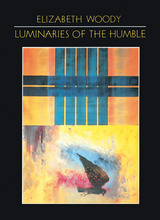
In opening remarks, Woody shares anecdotes of her youth that contributed to her sense of personal history and her development as a poet. "The petroglyphs on rock in the Columbia River Gorge are part of my literary heritage," she writes. Now through the medium of the printed word, Luminaries of the Humble marks an important continuation of that tradition.
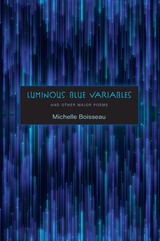
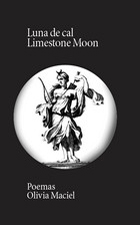

"Are you afraid of the sun?" Emily Dickinson asked a friend in 1859.
Wendy Barker states here that that apparently casual query reveals a major theme of Dickinson’s poetry, a theme she shares with women writers ranging from Anne Finch to Anne Sexton. It is a tradition based upon the inversion of the traditional male-centered metaphors of light and dark. Through time the light-giving sun has represented vitality, order, God; the light-swallowing night death, chaos, Satan. These metaphors are reinforced in the writing of Emerson, Thoreau, Hawthorne, and Keats,but Eliot, Brontë, Browning, and Dickinson use the sun and images of light quite differently.
Barker argues that since light was a masculine tradition, ithad come to represent male power, energy, sexuality—not only to Dickinson but to other women writing during the era. To these writers the inversion of the light/darkness metaphor became a countertradition used as a means to express their energies in a society that was hostile to their intelligence. Dickinson, who read avidly, could not have been insensitive to this usage of light as a masculine symbol—of her Calvinist God, of her father, of all that was male—and of darkness as a feminine symbol.
Emily Dickinson thought in a richly symbolic manner. Her most frequently used metaphor is one of light in contrast to darkness, employing single-word references to light more than one thousand times in her 1,775 poems. Barker offers close readings and new interpretations of some previously overlooked or misunderstood poems and demonstrates that "Many of her most ecstatic images are oflittle lights created from darkness." Inanswer to those critics who have characterized her poems as being piecemeal, Barker argues that Dickinson’s consistent use of light as a metaphor unifies her poetry.
In her final chapter, Barker explores the ways in which twentieth-century female writers have carried on the countertradition of the light/darkness metaphor. "That Dickinson was able so brilliantly to transform and transcend the normative metaphoric patterning of her culture, creating, in effect, a metaphor of her own, has much to do with the genius of her art."

Walt Whitman stands freshly illuminated in this powerful portrait of the poet responding to his times.
Whitman’s idealistic expectations of democracy were painfully eroded by the rapidly expanding urban capitalism that, before the Civil War, increasingly threatened the economic and political power of the ordinary American. His poetry during this, his most fruitful period, became the indispensable medium allowing him to adjust to these developments. He succeeded in portraying this modern society as an invigorating natural extension of the artisanal order. After the war, however, American capitalism advanced at a pace that made it impossible for Whitman to redeem it through his poetry. His imagination defeated by realities, he invested more and more in dreams of the future, while his poetry turned to the past, Memory emerging as a central figure.
In this many-sided analysis M. Wynn Thomas relates Whitman’s work to American painting of the period; examines the poet’s evocation of nature, which he sometimes saw as a challenge to man’s confidence in himself; documents the revisions and additions Whitman made to Leaves of Grass in order to demonstrate that “my Book and the War are One”; and pays sympathetic attention to the postwar poetry, usually slighted.
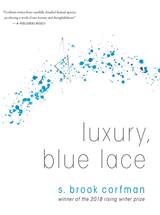

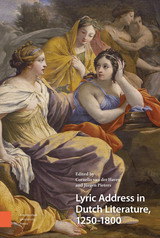
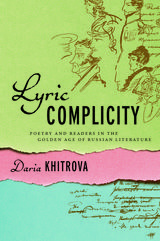
Lyric Complicity helps modern readers recover Russian poetry’s former uses and functions—life situations that moved people to quote or perform a specific passage from a poem or a forgotten occasion that created unforgettable verse.
READERS
Browse our collection.
PUBLISHERS
See BiblioVault's publisher services.
STUDENT SERVICES
Files for college accessibility offices.
UChicago Accessibility Resources
home | accessibility | search | about | contact us
BiblioVault ® 2001 - 2024
The University of Chicago Press



